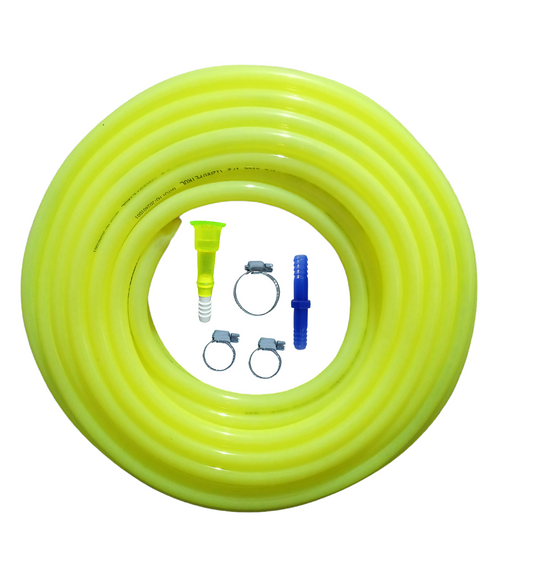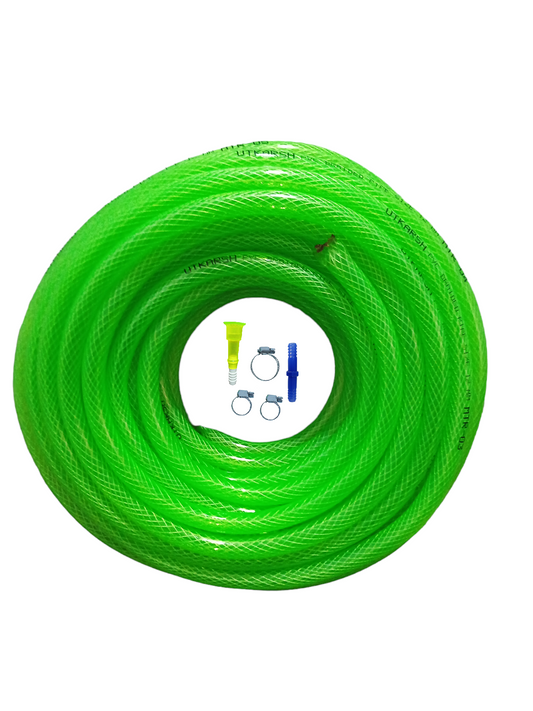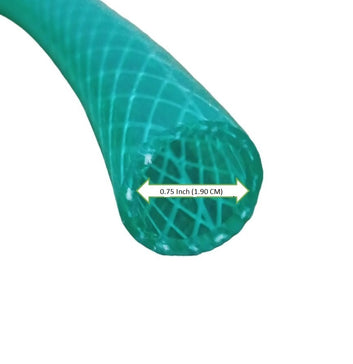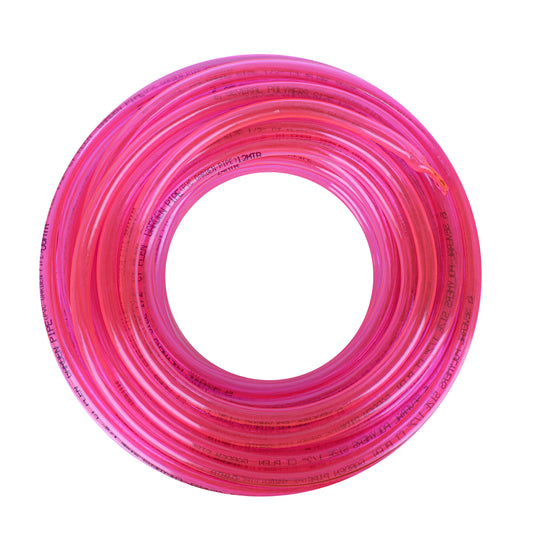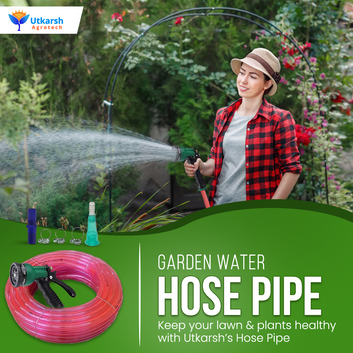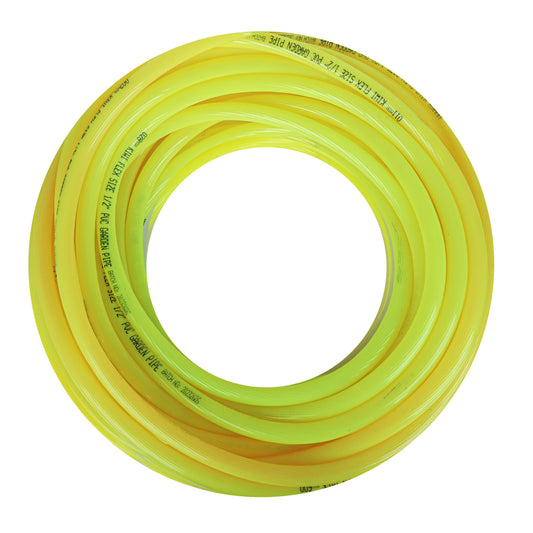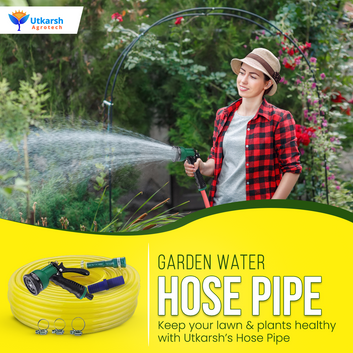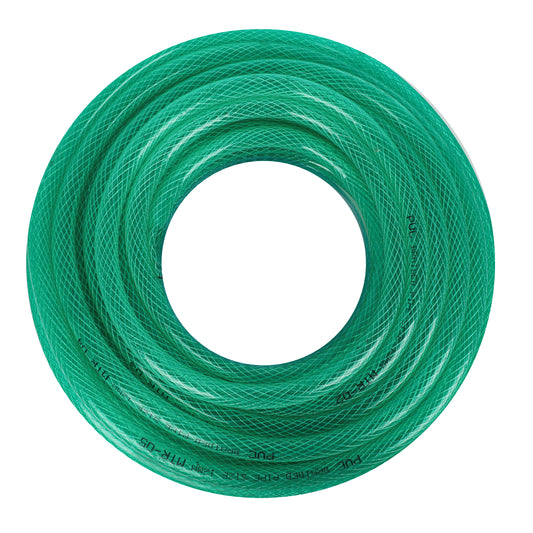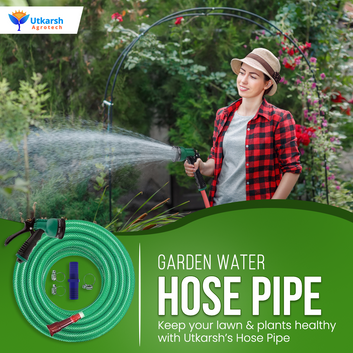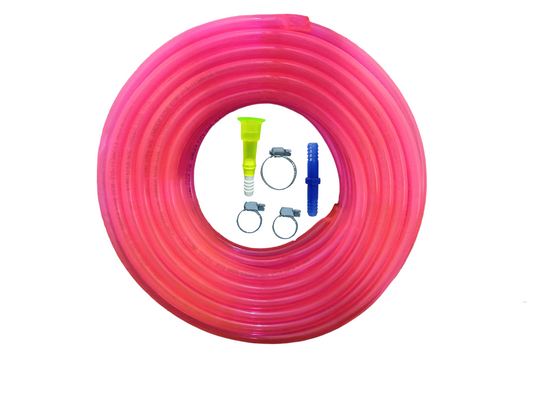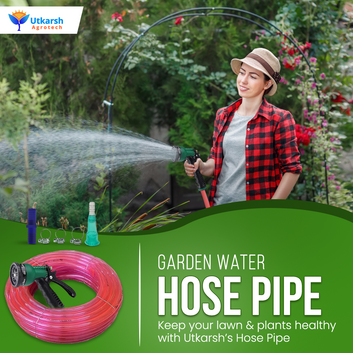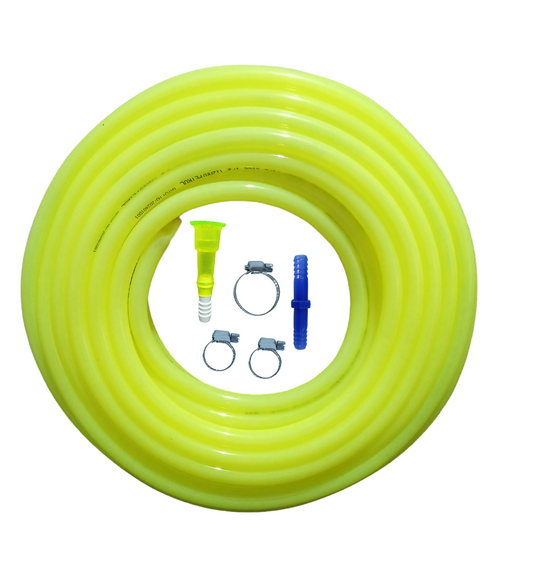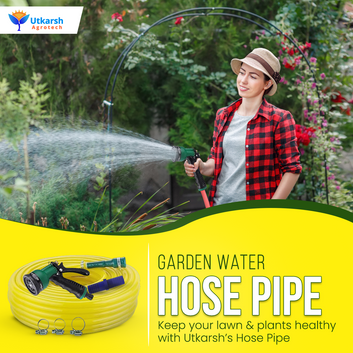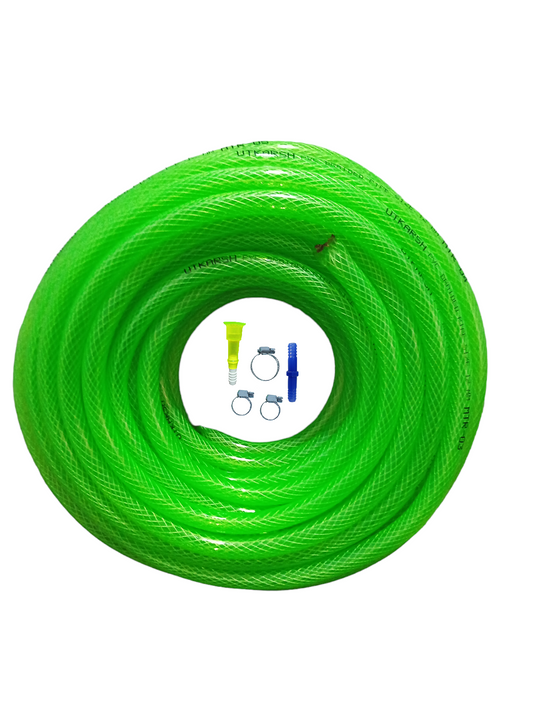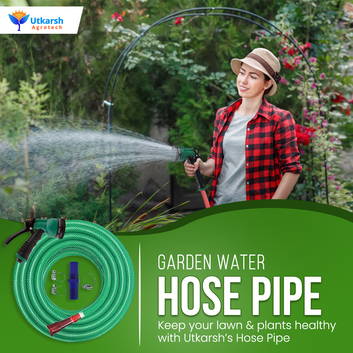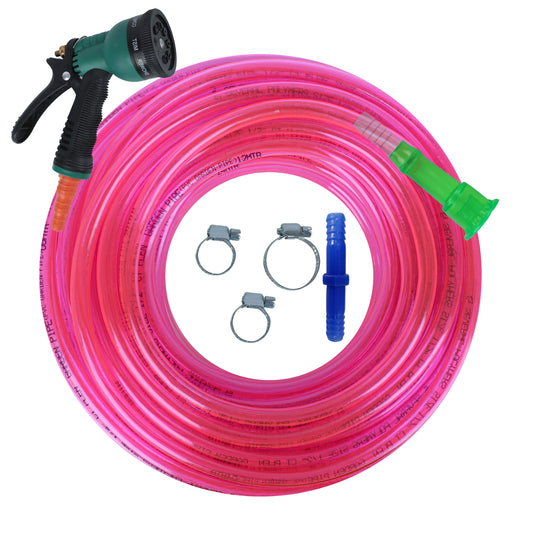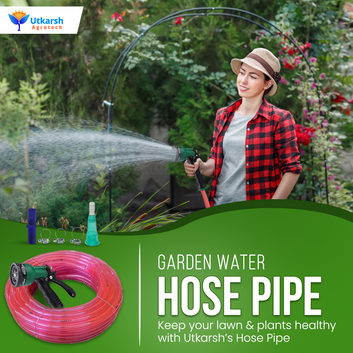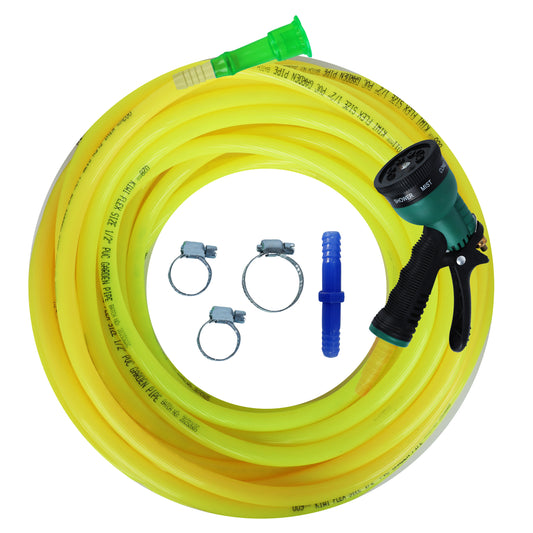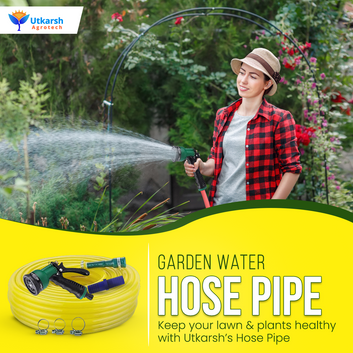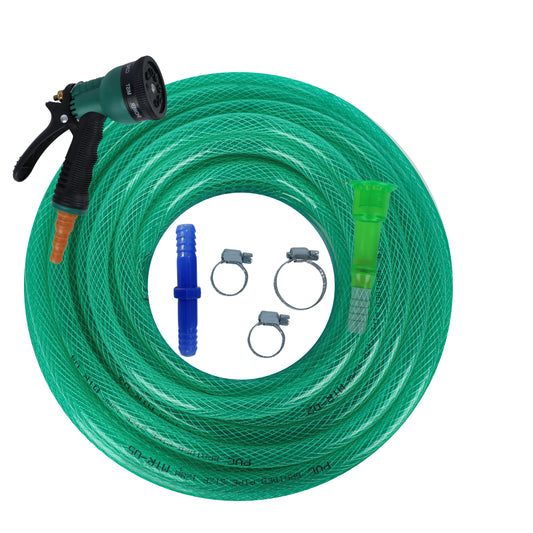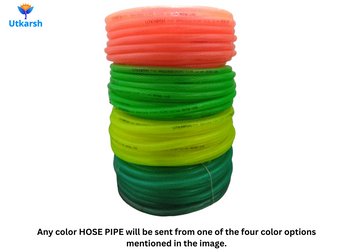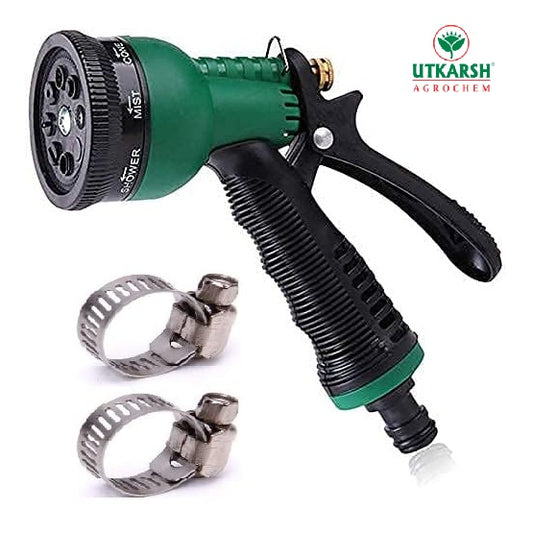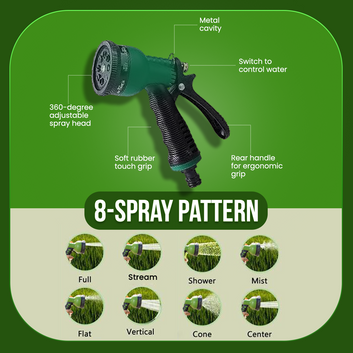Water Hose Pipe
PVC Transparent Water Hose (1/2 inch), 8 Pattern Nozzle Sprayer, 1 Tap Adapter, 3 Clamps & Connector
- Featured
- Best selling
- Alphabetically, A-Z
- Alphabetically, Z-A
- Price, low to high
- Price, high to low
- Date, old to new
- Date, new to old
Recently Viewed Products
Detailed Guide Upon Selection of the Perfect Water Hose Pipe for the Garden
The right kind of equipment is needed to maintain a well-tended garden to be evergreen and flowering with life. The hose pipe for water is, therefore, an essential accessory for the garden. Whether you have experienced gardening or are just starting the journey, the right pick of a water hose will have considerable effects on the health and beauty of your plants. This ultimate guide will take you through everything you need to know about water hose pipes so that you can make an informed choice.
Why You Need a Quality Water Hose Pipe
A water hose pipe is much more than just any common gardening equipment; it is a device meant to ensure that the garden gets sufficient water. Quality water hose pipes provide efficiency in water flow, durability, and ease of use. This is an investment in a good hose that will save you time, reduce water waste, and ensure the prosperity of all your plants.
Varieties of Water Hose Pipes
Vinyl Hose Pipes: These are cheap and light and best for light gardening use. The plus side of the light weight of the hose is that it is easy to handle and store but can easily kink in the process.
Rubber Hose Pipes: These are heavy-duty and durable, with the ability to hold up against any crack or high pressure of water. They come costly because of excellent durability and a longer lifespan.
Reinforced Hose Pipes: These have an extra mesh layer sandwiched between the two layers of the inner and outer, hence stronger. Kink-proof and can handle high water pressure, thus suitable for heavy-duty.
Soaker Hose Pipes: These pipes are designed to discharge water directly into the roots, and for this reason, they are well suited for use in flower beds and vegetable gardens. They have tiny pores running lengthwise, allowing water to ooze out steadily.
Expandable Hose Pipes: They are great for a person looking for lightweight and easy storage in mind. They expand when water is turned on and contract when off. This kind is great for small gardens or patios, though it is less rugged than the others.
Key Features to Look for in a Water Hose Pipe When buying a water hose pipe, the main features to consider are:
Length: Consider the garden size and distance from your water source. Hose pipes come in all kinds of lengths, but usually, some of the options will range between 25 to 100 feet long.
Diameter: The diameter of the hose thickness will affect the flow of water. Common diameters available include 1/2 inch, 5/8 inch, then 3/4 inch. With a larger diameter of the garden hose, there will be more eligibility for the water to flow, but that may mean it is heavy.
Material: Choose to suit your requirements. Some of them are rubber and reinforced, making them strong and durable, but they tend to be heavy; hoses are also made of vinyl, which is lighter and cheaper.
Couplings: Must be strong; otherwise, it's going to blow out. Some of the couplings are made from brass for tough and corrosion resistance; for others, they are made of plastic for lightweight but lack strength.
Flexibility: A flexible pipe easily goes around your garden. Select a pipe labelled kink-resistant to avoid interference in water flow.
Burst Pressure: This tells you how much force your hose can take in water pressure before bursting. A burst pressure of about 300 PSI is just fine for simple gardening.
Maintaining Your Water Hose Pipe
Here are a few tips to make sure your water hose pipe lasts longer in service and functions well:
Proper Storage: Make sure to store the garden hose in a cool, dry place. You might want to use a hose reel or hanger to do proper coiling, hence averting chances of kinking.
Drain Water: Drain out water after every use, to prevent freezing and the growth of moulds.
Avoid Kinks: Right coiling and the avoidance of sharp bends will prevent it from kinking.
Check for Leaks: Regularly check the hose for leaks, and if holes or cracks have developed, repair them immediately.
Washing: Wash the hose from time to time through lukewarm soapy water. This removes dirt and other material sticking to the hose.
Advantages of Having a Quality Hose Pipe
Investing highly in a hose pipe is worth the investment. The following are the benefits accrued from a quality hose pipe:
Efficiency: A quality hose guarantees a constant flow of water; hence watering will be not only smooth but cheap but also save time, thus efficient.
Durability: Quality material resists wearing out; hence the longevity of a hose that is of quality.
Ease of use: This has features like being kink-resistant, and the material is flexible. This makes the hose easier to handle and manoeuvre.
Cost-effective: The initial cost may be high, but being a durable hose, it has a great service life. Over the years, you will save a lot in terms of replacement costs.
Environmental benefit: proper watering conserved the scarcity of water sources by not allowing too much water waste, thus promoting a more sustainable garden.
A hose for water supply is quite an important and essential means for any kind of gardener. You can choose the best possible by finding out the types of hoses available, noticing the following main features: length, approximate diameter, material from which it is made, and its flexibility, according to your garden's needs. Maintain your hose for longevity and happy gardening!
It's an up-front investment in your gardening pleasure and in the health and beauty of your garden. Make sure you absolutely need a hose, and then follow good maintenance practices. With the right tools, your garden will flourish, providing you with joy and satisfaction for years to come.

